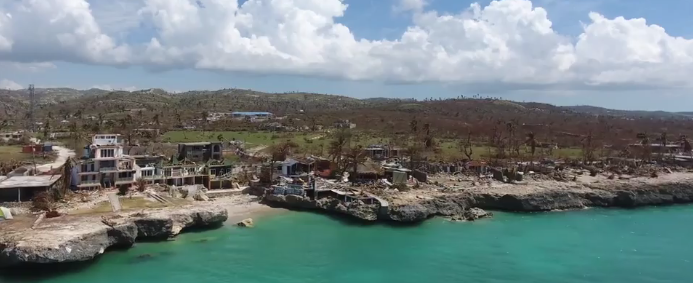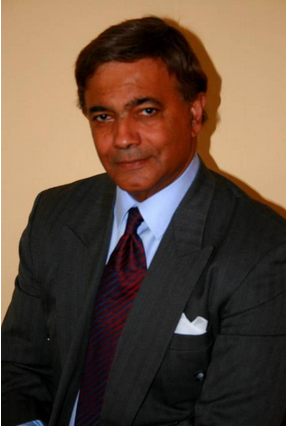
A politically connected tourism and jobs promoter for Haiti has been charged in a scheme to bribe Haitian government officials over the construction of an $84 million port.
Roger Richard Boncy, 74, a dual U.S. and Haitian citizen who resides in Madrid, was charged Tuesday in an indictment filed in Massachusetts with one count of conspiracy to violate the Foreign Corrupt Practices Act and the Travel Act, one count of violating the Travel Act and one count of conspiracy to commit money laundering.
“This case should never have been charged. Mr. Boncy never paid any bribes,” said Jed Dwyer, an attorney with Greenberg Traurig in Miami who is representing Boncy. “This is no conspiracy. “
Already charged in the case as a co-conspirator is Dr. Joseph “Joe” Baptiste, 66. Baptiste, a retired U.S. Army colonel and practicing dentist who lives in Maryland, was originally charged by indictmentin the case in October 2017. Baptiste’s trial is scheduled to begin on Dec. 3 in Boston.
Baptiste, a one-time influential member of the Haitian diaspora who hosted U.S. lawmakers and Haitian prime ministers at his lavish home and informally advised U.S. State Department officials on Haiti matters, is accused of conspiring to bribe senior Haitian government officials to win support for the $84 million port project in Mȏle St. Nicolas, a city in northwest Haiti. Prosecutors accuse Baptiste, the chair and founder of the National Organization for the Advancement of Haitians (NOAH), of funneling some $50,000 in bribes through his non-profit charity meant to help Haiti’s poor.
Baptiste had supposedly cut a plea deal at the end of December 2015 but backed out of it, according to authorities. It’s unclear why the U.S. attorney’s office in Boston waited so long to charge him.
The new indictment claims that Baptiste and Boncy solicited bribes from undercover FBI agents posing as potential investors in connection with the port project. The proposed project was to involve the construction of multiple cement factories, a shipping-vessel recycling station, an international transshipment station with numerous slips for shipping vessels, a power plant, a petroleum depot and tourist facilities.
“What happened here was that the FBI got out-hustled — and ended up losing,” $50,000, Dwyer said. “What didn’t happen was some kind of bribery scheme.”
A former federal prosecutor, Dwyer said his client never knew that Baptiste “had asked for money from the FBI to pay bribes.”
“Mr. Boncy never asked for a dime to pay bribes. Mr. Boncy never received a dime to pay bribes. Mr. Boncy never gave any money to anyone else to pay bribes,” he said.
When contacted by the Miami Herald after Baptiste’s arrest in August about whether federal agents’ description of the proposed port was the same project that he had been promoting among members of then-President Michel Martelly’s government, Boncy responded, “Sorry … it is inaccurate.” He did not provide further details.
While Boncy lived in Spain, he was often in Haiti where he promoted the economic and strategic benefits of a port in Mȏle St. Nicolas, the site where Christopher Columbus landed on Dec. 6, 1492 during his first voyage to the Americas. Boncy described the area as having the deepest and best-protected natural port in the region that could easily rival the Panama Canal based on its location on the Windward passage. Frustrated by the lack of support from the government, he would say, “We mean to make a difference for Haiti.”
The CEO of Hispaniola Invest, LLC, Boncy was named Haiti Ambassador-at-Large by Martelly in 2013, and served as permanent representative of Haiti to the United Nation’s World Tourism Organization, according to his LinkedIn profile.
“Mr. Boncy has given almost everything to his beloved home, Haiti — but he would never give his soul,” Dwyer said about his client, who has not been arrested. “We look forward to clearing his name.”
The case against Boncy and Baptiste unfolded in Boston, and is part of a 2014 U.S. government probe into allegations that Haitian-American businessmen had been offering to bribe high-level Haitian government officials in exchange for the ability to do business in Haiti, according to court documents. The new charges come as more Haitians there and abroad denounce corruption and demand accountability from Haiti’s political class. A committee of the Haitian Senate has accused past and current officials of squandering billions of dollars in proceeds from Venezuela’s discounted PetroCaribe oil program.
Federal agents say that they have Boncy and Baptiste on tape during a recorded meeting at a Boston-area hotel telling agents that in order to secure Haitian government approval of the port project, they would funnel the payments to Haitian officials through Baptiste’s non-profit.

In intercepted telephone calls, Boncy and Baptiste also allegedly discussed bribing an aide to a high-level elected official in Haiti with a job on the port development project, in exchange for the aide’s help in obtaining the elected official’s authorization for the project. Federal officials have not named either the Haitian government aide nor the elected official.